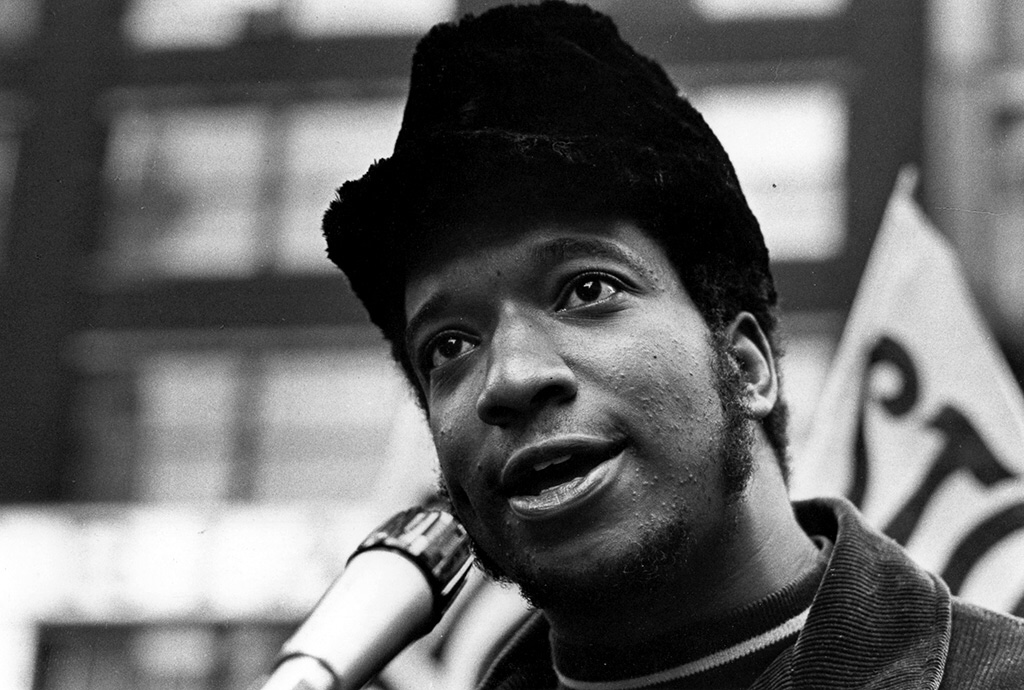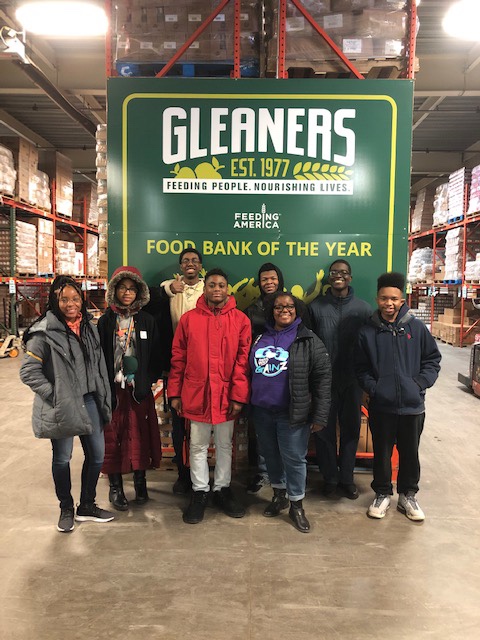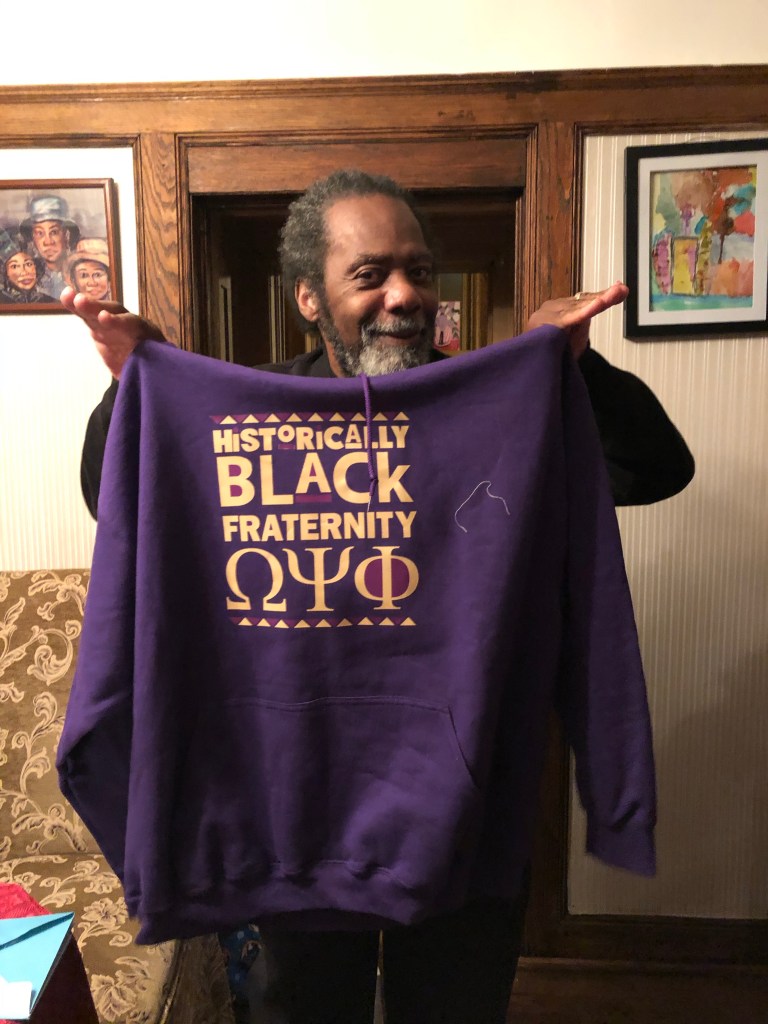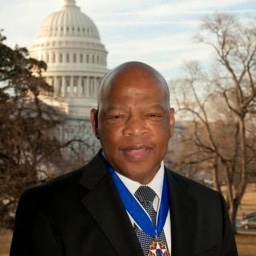My son completed his Rites of Passage process on July 21, 2020 on his 13th birthday. During his process he was to learn and internalize the principles of Kwanzaa, a cultural tradition we celebrate and observe as a family. He met with members of his community to discuss and learn how they apply the principles of Kwanzaa in their daily lives. He also completed 3 community service projects. Learned to plan and prepare a meal for a family, took on the responsibilities of maintaining landscaping at home, budgeting and money management, and so much more.

Now that he has completed his Rites he has closed the door on his childhood and begun his official journey toward manhood. The culmination of this process is the keynote address he prepared and delivered at his ceremony. Below is the address in its entirety written by Langston with editing by me, his mom.
Introduction
To me being Black means to define yourself, create for yourself, know your history, bring your community together to suggest a common solution to a problem, and effect positive change all around the world. I know that Black men contribute all around the world in art, fashion, books, poetry, music, teaching, leadership, sports, acting, history, faith, politics, religion and cooking. Black men contribute to every aspect of American life. Famous Black American men who have made big contributions and I see as role models are: Carter G. Woodson, Fred Hampton, Dapper Dan, Kehinde Wiley, Marcus Garvey, Donald Glover, John Mercer Langston, and John Lewis.
These men have shown me by their example that you should 1. Be self determined; 2. Be confident, 3. Understand faith is bigger than just yourself, 4. Define yourself, 5. Create for yourself and for your people, and 6. Know your history.
My purpose as a black man is to work to end racism. My family has influenced me to know my history and to stand up for what I believe in. My grandma influences me to be an activist. Uncle Glenn has influenced me to be strong. Uncle Ben influences me to be creative. Both my aunties influence me to know my history. My mom influenced me to be a positive influence in my community. My dad influences me to work hard. My grandma Jean teaches me to have faith. And my Baba teaches me to never give up.
Racism is the belief that certain races of people are by birth and nature superior to others and discrimination or hatred based on race. Racism effects black people in multiple ways. Because of racism George Floyd is dead and so is Hakim Littleton and the list goes on and on. The cops in our communities abuse their power and their firearms and they shoot us just for walking down the street with a pack of skittles. Racism affects my family because men around me get pulled over for no reason. We live only around black people. My school is all black. We live in a segregated community.
Racism impacts me because when I’m around all white people I get nervous and when I see cops I get nervous. It’s not fair how they treat us and it needs to change now! When I end racism I’m going to make sure that nobody oppresses anyone and that we don’t live in segregated communities and schools. I want to make sure they can’t kill us just because we’re black.
To be a black man in the 21st century I know I am going to need faith, confidence and an attitude that not everyone is out to get me.
I’m going to need education and technology and more role models to guide me through life and help me end racism. I am going to need positive friends and family members and positive influences from people like role models and education.I’m going to need a car. I’m going to need a job or run a business for myself. Most importantly I am going to need a place to live. I see myself being a soccer player or a video-game designer or even an activist. Over the past few weeks I have been meeting with people in my family to talk about the principles of Kwanzaa and how they live by them. I have learned that confidence is key in doing anything that you want to do to be successful. Here is what I learned:
UNITY (UMOJA)
The first principle I discussed was UNITY with my grandma Jean. During our conversation she talked about how at church when someone is in need or hurting they immediately come together to help them. Unity is to strive for and maintain unity in the family, community, nation, and race. When people stand alone they make very little change but when we band together we make a large change. I feel my community is united in trying to stop racism in the black community. My soccer team represents unity to me. When we work together we accomplish a common goal. Once I was going down field and everyone was running with me. My team guarded everyone else while I was still running. I made the goal. I caught the goalie off guard. So if they weren’t there I would have not made the goal. Carter G. Woodson is the father of black history. He demonstrates unity to me. We come together to celebrate African American achievements and recognize the central role of blacks in U.S. history because of him. I know that I’m going to have to bring people together to stop racism.

SELF-DETERMINATION (KUJICHAGULIA)
The second principle I learned about is Self-Determination. I discussed this with my cousins, Titus and Joe. Kujichagulia is to define ourselves, name ourselves, create for ourselves instead of being defined, named, created and spoken for by others. An example of Self-Determination for me is my cousin Joe. He went to the army even when people were telling him he couldn’t make it but he did. Another family example of Self-Determination is my cousin Titus. He told me at college times were tough but he still found ways to get back up on his feet and walk across the stage! I incorporate self-determination into my life at school. There was a time when I began 3rd quarter of the grade book with all F’s. I could have let those grades define me. Instead, I created a solution for myself. In the end I earned all B’s and A’s in all my classes. Fred Hampton was an activist and revolutionary socialist and he was chairman of the Black Panther Party in Chicago. He was a young black organizer and he gave his life to teach young black men how to be self determined. Fred Hampton represents Self-Determination because he demanded that Black people speak and define ourselves instead of having other people do it for us. When I fight to end racism I will say that we can define and create ourselves just as any other person can.

UJIMA (COLLECTIVE WORK AND RESPONSIBILITY)
I discussed the third principle with my Auntie Cassie and her friends. Ujima means Collective Work and Responsibility. Ujima is to build and maintain our community and make our brothers and sisters problems ours and solve them together. Auntie Cassie’s friends shared with me what they do for a living and how this principle impacts their lives. They also talked about how to be a good influence. Something I took from the lesson was that you can do well by helping others. I made a proposal on how I think I can stop racism. My solution is to go to more protests with grandma and speak about how I feel about what’s going on in my community. Once Auntie Cassie organized a bus to go protest against the charges put on the Jena 6. This proves that she makes other people’s problems her problems and solves them with others. Collective Work and Responsibility is important because without it we all are focused on ourselves and not thinking what it’s like to be in the other person’s shoes. To incorporate Ujima I can do what Maulana Karenga said which is build the world that we want and need. If I could build a world I would have it free of racism and I would do that by making sure that everyone gets equal rights. I help maintain my community by cleaning up Rouge Park. Another example of how I practiced Ujima would be when me and my mom went to Gleaners to pack up food for those in need of it.

UJAMAA (COOPERATIVE ECONOMICS)
Ujamaa means Cooperative Economic. Ujamaa is to build and maintain our own stores, shops, and other businesses and to profit from them together. Cooperative Economics is important because when we are supporting our own businesses it’s like we are giving back to our community instead of giving our money to the big brands that are not helping our community at all! I discussed this principle with my cousin Matthew. He was talking about more ways I could practice Ujamaa. One of the ways was buying Black. Buying Black is when you support your fellow brothers and sisters in small businesses in Detroit or anywhere. Someone who represents Ujamaa to me is Dapper Dan. Dapper Dan took fabric from brands like Gucci and designed his own clothes. Something I did to show Ujamaa was create a lemonade stand. When I had a lemonade stand I used the money I earned to start a savings account at the credit union and I donated money to Moratorium Now.

NIA (PURPOSE)
Nia means purpose. Purpose is to make our collective vocation the building and developing of our community in order to restore our people to their traditional greatness. Having a purpose is important because it motivates us and gives us reasons for our existence. Kehinde Wiley represents purpose because in his art he is saying that we as Black people deserve to be in the picture. I spoke to Uncle Gary about this principle. He told me that if you know your purpose nobody can stop you at being successful or doing anything. I helped build and develop my community with me and my mom painting bowls to raise money for Cass Community Social Services. At Cass Community Social Services they give food to people, they give shelter, and they train people for jobs to work in the community.

KUUMBA (CREATIVITY)
Kuumba is to always do as much as we can, in the way that we can in order to leave our community more beautiful and beneficial than we inherited it. Kuumba means Creativity. I discussed this principle with my Uncle Ben. He told me that you should chase your dreams before you lose sight of them and that you should always try to do something positive in your community. Uncle Ben is the host and creator of Motor City Singer’s Space. Motor City Singer’s Space is an interactive jam session that showcases vocalists in Detroit. Donald Glover represents creativity because he is a producer, rapper, writer, and actor. Donald Glover uses all the resources that he has to make his community better just like my Uncle Ben. My talents are reading, writing, communicating, soccer, and playing instruments. I can use my talents in the future to help others by teaching them how to play soccer or how to write better.

IMANI (FAITH)
Imani mean Faith. Imani is to believe with all our hearts in our people, our parents, our teacher, our leaders, and the righteousness and victory of struggles. I discussed Faith with Uncle Brian. He told me that you should always believe in yourself and God. He also told me that not everything is just about you. Someone who represents Faith is Marcus Garvey. He was a charismatic black leader who organized the first important Black nationalist’s movement. Marcus Garvey had to have a lot of faith to do that because you can’t be a leader without faith in yourself and your people. I demonstrate faith by listening to my parents and doing what they tell me to do

FRIENDSHIP (URAFIKI)
Urafiki is Swahili for Friendship. Friendship is to honor friendships as sacred family bonds seeing our brothers and sisters as ourselves. I discussed this principle with Uncle Rodney. He told me that not everyone has your best interest at heart and not everyone is your friend. An example of friendship to me is Omega Psi Phi Fraternity. I choose them because they play a big role in friendship and brotherhood. My Baba is a member of Omega Psi Phi Fraternity. He told me that in Omega Psi Phi they always stick together and do things together. I can show friendship by being a good friend to those who need me and choosing my friends wisely.

HEKIMA (WISDOM)
Wisdom in Swahili is Hekima. Hekima is to use the trials and triumphs of our past to forge our future. I discussed this principle with my grandfather. I call my grandfather Baba. He told me Wisdom is doing what you have to do even when you don’t wanna do it. He also talked about doing your work and not procrastinating and learning the fundamentals of life. An example of Hekima would be John Mercer Langston. He shows wisdom because he was the first black person to argue a case before the Supreme Court. John Mercer Langston was the first dean of the law school at Howard University. He helped create the Law School at Howard. He was also the first president of Virginia State University. He shows wisdom to me because without him there would be no Howard Law School, no Langston University, and no Langston Hughes. I can show wisdom by using the knowledge from the past to make better decisions in the future. A mistake I made in the past would be when I put off my science project and then had to rush to get it done at the last minute.

MAPENZI (LOVE)
Mapenzi means love. I discussed Love with my Grandma Yvonne. She told me love is action, caring, doing, listening, believing, and standing by someone even when they’re wrong. She also told me that love is sharing, giving, being disappointed, happiness, joy, peace, and sometimes loneliness. Love is all this and more. Love is always wanting the best for someone. And sometimes wanting it more than the other person wants. Love is getting up to cook, clean and work for those that we care about even when we don’t want to. Love is action. John Lewis shows love to me because he dedicated his life with action to help us. I can demonstrate love by caring for others instead of trying to hurt them.

CONCLUSION
Throughout all my meetings I learned that I have applied all the principles of Kwanzaa in my life at one point without realizing it. I also learned that all these principles can guide you throughout life.I have a mission to complete. That mission, my mission, is to end racism and unite my community to help me. Racism is still a huge problem in the 21st century and it needs to stop one way or another. Mothers have lost their children because of racism. We all need to come together to find a worldwide solution to stop racism. That starts now.
